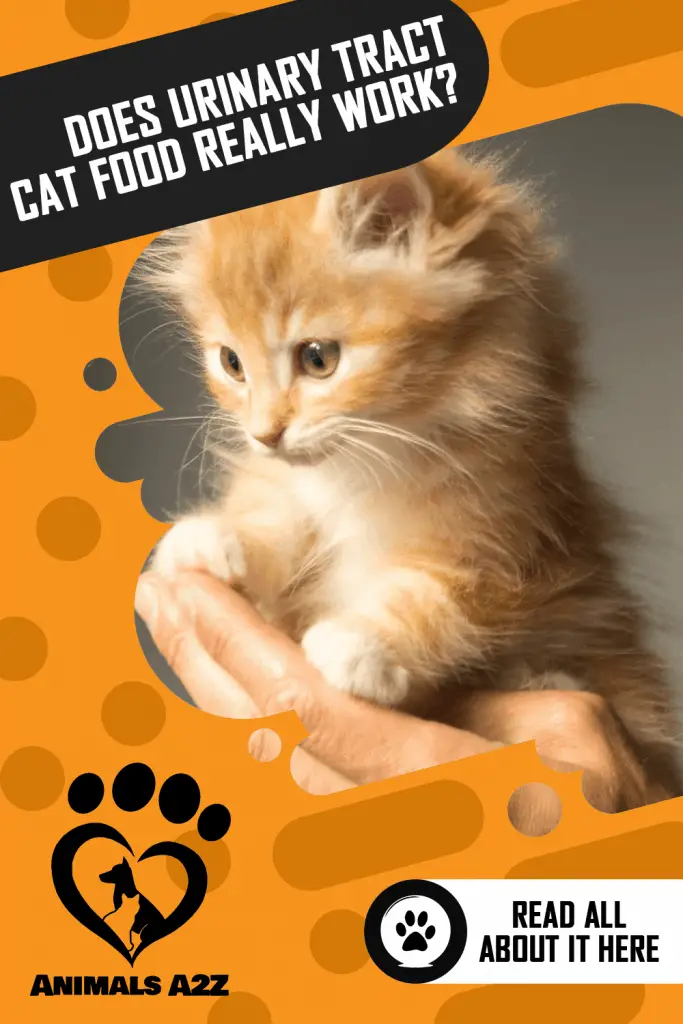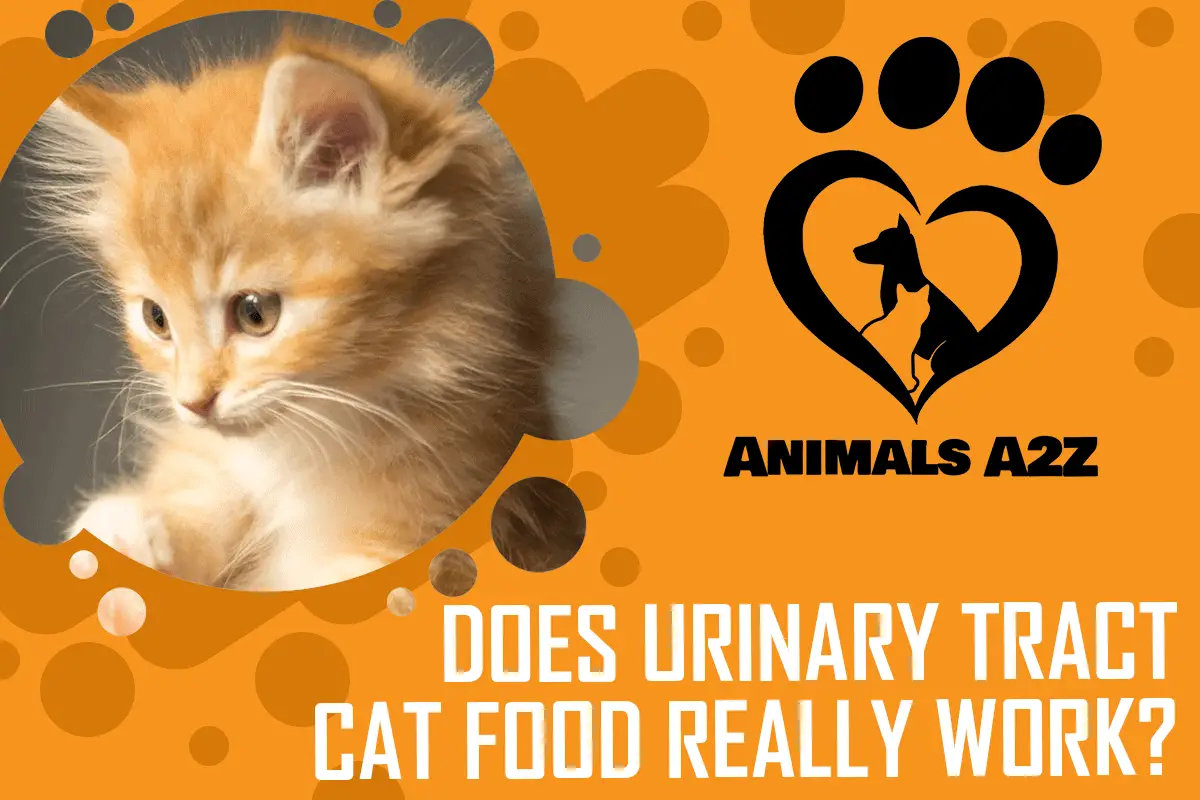Yes, urinary cat food works in many cases because it increases the urinproduction so the cat can easily dilute urin stones. However, sometimes, the stones are too big and the cat needs an operation first.
Urinary problems are very common issues in cats. Bacterial infections might accompany other feline urinary tract problems like uroliths or bladder stones and urine crystals. While these problems are often treatable, it’s a bothersome to you as a cat owner since treatment can be painful. If left untreated, these diseases can be deadly.
Table of Contents
Why Cats Are Prone to Bladder Stones and Urine Crystals?
Bladder stones and urine crystals form when more calcium, magnesium, protein, or phosphorus exists in the urine of your cat that its normal system can dissolve effectively. Some special diets that are supposed to prevent the formation a certain kind of crystal may actually cause the other, which is why it’s best if you avoid such kind of feline diets.
Experts nowadays continue studying the relationship of special diets to a cat’s urinary tract health.
Originally, many people thought that diets containing high levels of ash and magnesium contributed to the problem. But now, more emphasis is placed on the urine’s pH (alkaline or acidic). According to vets, a range between 6.0 to 6.5 is recommended.
- Should you give an old cat different food
- Good to know! What can you feed your cat if you run out of cat food
- The Ingredients in Cat Food Causes Crystals in Urine
Cat Food that Helps Prevent Feline Urinary Problems
So far, the most essential “food” you can give to your cat for his urinary health is plain fresh water. That is because neither bladder stones nor crystals can develop when minerals are diluted sufficiently. We understand that it can be difficult to get your furry feline friend to drink more water since cats are thirst-tolerant animals by nature.
Some strategies for boosting the water intake of your cat include buying a cat fountain or providing them lots of fresh water and try to prepare it in multiple bowls. Particularly, cat fountains are very effective since most kitties prefer drinking running water.
Good quality wet canned foods are generally better for the urinary health of your cat than dry foods. But there are also some dry cat foods which have been pH balanced more carefully.
However, even when you opt for a high-quality dry cat food, water and canned food remain as the most important weapons against cat’s bladder stones and urinary crystals.
What Causes Urinary Tract Stones in Cats?
The two most commonly known types of feline urinary tract stones are calcium oxalate and struvite. Even though stone development is understood poorly, chances are there are a wide array of contributing factors, such as the water consumption, urine pH, and diet of your cat.
Struvite stones and crystals tend to develop in urine with a high pH level, or alkaline urine. Foods with high mineral content like phosphorus and magnesium can increase the levels of pH in urine.
Poorly hydrated cats can develop concentrated urine or less water content and might be at a much higher risk of forming stones and urinary crystals as well. Kitties that develop struvite are often fed with a therapeutic diet, which can help dissolve the stones through acidifying the urine.
One the other hand, calcium oxalate stones can form in urine with low pH levels, or a more acidic urine. Foods with low phosphate and magnesium content which are specifically designed to acidify the urine, might contribute to the formation of calcium oxalate stones in urine.
The problem with this is that calcium oxalate stones can’t be dissolved with simple diet so it should be removed through other methods like surgery.
Common Questions About How Urinary Tract Cat Food Work
What Can I Give My Cat for Urinary Crystals?
Usually, struvite stones can be dissolved easily. The main goal is to simply create more dilute and acidic urine. There are prescribed canned cat diets that can help acidify the urine and considered by experts as the most ideal solution. However, some cat’s will not eat wet food so look for available dry formulations. Medications that help acidify the urine can also be utilized when your cat should be on another special type of diet.
Can Cats Pass Crystals on Their Own?
The crystals can be normally passed easily but it becomes problematic when they eventually combine to form stones or grit of varying sizes and shapes. In some cases, these stones can be dissolved or flushed out of the body. But in other cases, stones must be removed surgically. Both female and male cats can be affected by stones and urine crystals.
What Makes Urinary Cat Food Special?
When your cat has urinary problems, you should feed him with a diet high in meat and moisture. Together, they can help keep mineral waste dissolved so it can be passed out through urine. Cats who only eat dry food, which is low in moisture and meat, have more alkaline, concentrated urine, will lets the formation of stones and struvite crystals.
Conclusion
While you might prefer to purchase specialty or organic foods for your cat, it really is not necessary unless your feline friend already has urinary problems or your veterinarian suggests a certain type of food. A good quality commercial cat food should be okay for your cat. However, make sure to avoid fish-flavored cat foods, since they are said to be one of the most common suspects in the formation of urine crystals.
Make sure your furry feline always has plenty of clean, fresh water and avoid feeding him table scraps. When your cat isn’t drinking enough water, you can try buying a cat fountain, making sure its water is fresh daily, or add more water bowls at home. You should also carefully watch for any signs of distress like missing the litterbox or straining to urinate.


